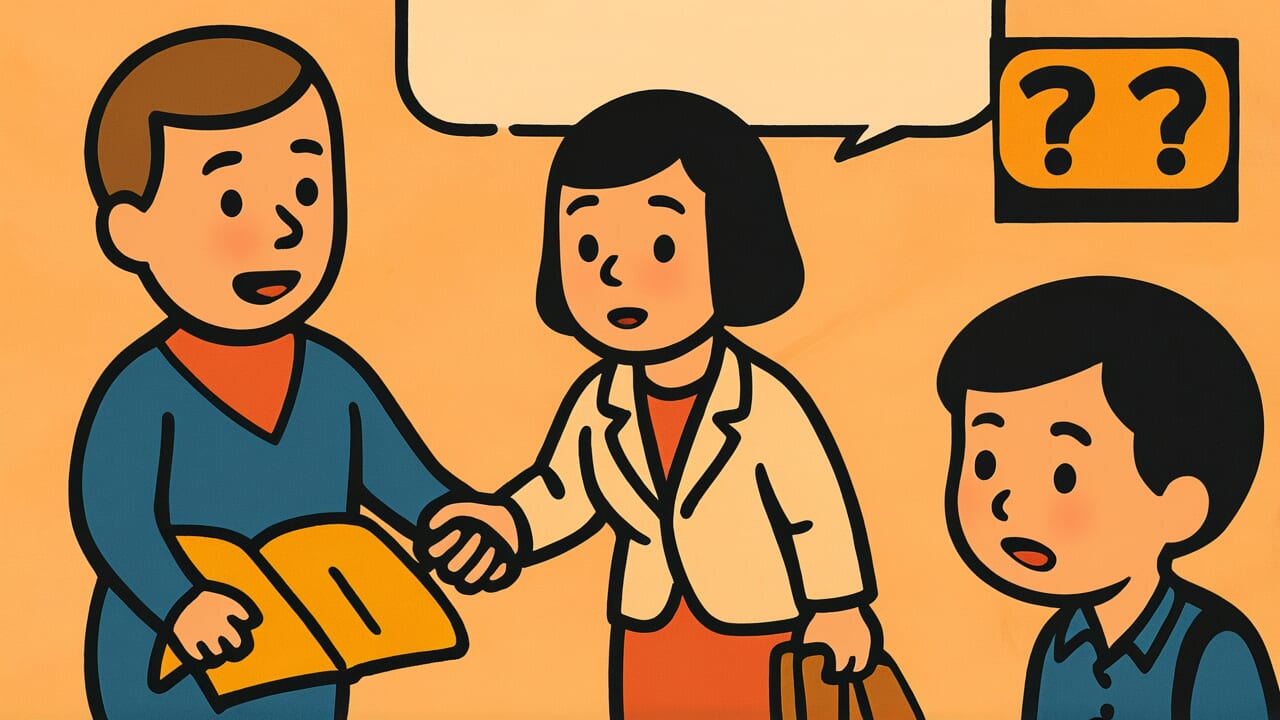How to Read “Don’t give a child to someone who has no children”
Konashi ni ko wo kureru na
Meaning of “Don’t give a child to someone who has no children”
This proverb teaches that you should avoid leaving your child with someone who has no children of their own.
The reason is simple. People without child-rearing experience lack the practical knowledge and instincts needed for childcare and safety management.
Children often behave unpredictably. Sensing danger and preventing it requires experience gained through daily parenting. You can’t learn this from books alone.
Recognizing changes in a child’s health, reading their moods, and responding appropriately are skills you develop only through actual child-rearing.
Even today, when leaving children with relatives or friends, people often consider whether that person has parenting experience. This serves as one factor in their decision.
This doesn’t mean discriminating against people without children. It’s practical wisdom that puts the child’s safety first.
Origin and Etymology
The exact literary origin of this proverb is unclear. However, people believe it has been passed down as folk wisdom since the Edo period.
Let’s look at how the phrase is constructed. “Konashi” means a person without children. “Ko wo kureru” uses “kureru,” which means “to give.”
Here, it means “to entrust” or “to leave in someone’s care.” So the proverb warns against leaving your child with someone who has no children.
Why did this teaching emerge? It likely came from practical reasons. People without child-rearing experience find it difficult to handle children and predict dangers.
In Edo period Japan, communities commonly helped each other raise children. Even so, deciding “whom to entrust your child to” was an important judgment.
This proverb may have another dimension too. People worried that childless individuals might become overly indulgent with children they watched.
Or they might fail to maintain appropriate boundaries. The saying reflects deep insight from our ancestors about both practical knowledge and the psychology of interacting with children.
Usage Examples
- When I tried to leave my child with a friend, my mother said “Don’t give a child to someone who has no children,” so I reconsidered
- The couple next door has plenty of child-rearing experience, so I feel safe, but the saying “Don’t give a child to someone who has no children” reminds me to choose carefully
Universal Wisdom
This proverb has been passed down for generations because it speaks to the essential value of human experience.
No matter how much knowledge you have, no matter how good your intentions, certain sensibilities and judgment can only be gained through actual experience. This proverb reveals that truth.
Child-rearing perfectly exemplifies this principle. You can gain knowledge from books, but some things can’t be learned that way.
The hand movements that soothe a crying baby. The intuition that senses severity from a feverish child’s condition. The reflexive action of reaching out in a dangerous moment.
These skills are sharpened only through practice. The human brain and body change through repeated experience, learning to respond appropriately without conscious thought.
Looking deeper, this proverb also speaks about the weight of responsibility. Watching someone else’s child means being responsible for that child’s life.
Leaving a child with an inexperienced person is an abdication of responsibility by the parent. It also places an excessive burden on the caretaker.
Our ancestors knew that good intentions alone aren’t enough in some situations.
In human society, respecting the wisdom of experienced people matters. Assigning appropriate roles to appropriate people is crucial.
This applies not just to child-rearing but to every field. This proverb conveys universal truths about human growth, learning mechanisms, and the wisdom of social role distribution in simple words.
When AI Hears This
When you examine why child-rearing advice often fails using information theory, a surprising structure emerges.
There’s an overwhelming gap between the information parents actually possess about child-rearing and the information that can be conveyed through words.
For example, the advice “soothe the baby when it cries” contains only a few dozen bits of information.
But experienced parents unconsciously process thousands to tens of thousands of parameters. They consider the cry’s pitch, rhythm, facial expression, body temperature, time of day, and preceding behavior.
Verbal advice is “ultra-compressed data” that strips away over 99.9 percent of the original information.
The bigger problem is that this compression is “lossy compression.” Like MP3 music files, once information is lost, it can never be restored.
People without child-rearing experience receive advice as compressed data. But they have no way to supplement the vast contextual information that was lost.
The subtle difference between a “hungry cry” and a “sleepy cry” is pattern recognition data accumulated through thousands of trials and errors. It cannot be transmitted through words.
This proverb points to a fundamental limit in human communication. The true body of experiential knowledge exists in vast layers of tacit knowledge that cannot be verbalized.
Lessons for Today
This proverb teaches you the importance of having “eyes that properly evaluate the value of experience.”
We live in a knowledge society where information is readily available. But in truly important situations, experience gained through practice is what really matters.
The same applies to work. When assigning a new project or seeking important decisions, borrowing the wisdom of experienced people is never shameful.
Rather, acknowledging your lack of experience and relying on the right people is the wise choice.
This proverb also teaches “the humility to know your limits.” Some problems can’t be solved with good intentions alone.
You need the composure to distinguish what you can and cannot do. That’s not weakness but a sign of responsibility.
When you entrust something to someone, and when someone entrusts something to you, remember this proverb.
By respecting the invisible treasure called experience and making appropriate judgments, you protect both yourself and those around you.
Wisdom dwells precisely in the accumulation of such small judgments.



Comments